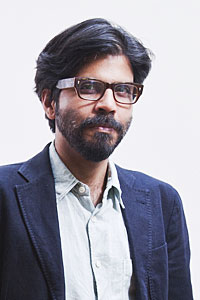Donald Trump became last week the presumptive Republican nominee in the US presidential elections. But those condemned to agonising suspense and anxiety until November should note that Trumpism, or the politics of hate and fear, also suffered a major defeat last week.
I refer to the election of former human rights lawyer Sadiq Khan as London's mayor.
That the son of a Pakistani bus driver, whose campaign team included gay men and Jewish women, should become the mayor of a great European city would at any time have signalled hope for our irrevocably mixed societies. Its significance in this era of politically expedient bigotry cannot be overestimated.
For, as Mr Khan said a day after his remarkable victory, his Conservative opponents set out "to divide London's communities in an attempt to win votes", using "fear and innuendo to try and turn different ethnic and religious groups against each other -- something straight out of the Donald Trump playbook".
Zac Goldsmith, the Conservative candidate, repeatedly tried to taint Mr Khan by linking him to Muslim extremists and accusing him of endangering the security of London. Prime Minister David Cameron himself accused Mr Khan in parliament of sharing a platform with a sympathiser of Islamic State; the supposed sympathiser later turned out to have Tory links. Mr Cameron's ministerial colleagues kept up a barrage of allegations about Mr Khan's complicity with extremists.
No tactic was deemed too ghastly in what even senior leaders within the Conservative party now call a "poisonous" and "outrageous" campaign to persuade white and non-Muslim voters to reject a Muslim mayor. I was one of the London residents with Hindu-sounding last names who received a letter from the British prime minister exhorting "our community" to vote for Mr Goldsmith.
The letter mentioned Mr Cameron and Mr Goldsmith's warm relationship with India's Hindu nationalist Prime Minister Narendra Modi and their joint attendance at Mr Modi's mass rally at Wembley Stadium last year. It went on to warn us, apparently like-minded Hindu devotees of Mr Modi, that we were about to become "lab rats in a giant political experiment" conducted by the "dangerous" Mr Khan.
Similar letters from the prime minister referring to "your community" went out to Sikhs and Tamils (none, as far I know, were addressed to Muslims). A retired biochemist called Barbara Patel, white and Jewish, and married into a Muslim family, also received one, thereby revealing the ham-fistedness as well as malevolence of ethnic-religious profiling.
Mr Goldsmith then wrote an article in the tabloid Daily Mail, which has in the past been notorious for, among many other things, its open-mindedness about anti-Semitism and Nazism. Mr Goldsmith's column alleging that Mr Khan had "repeatedly legitimised those with extremist views" was accompanied by a picture of a London double-decker bus destroyed in the terrorist attacks of July 7, 2005.
The attempt to conflate "extremism" and "terrorism" with "Muslim" in the voter's mind, or to import the sectarian passions of the Indian subcontinent to Britain, was a treacherous move in itself. But much more dangerous was the message young Muslims (an alienated community) could have easily drawn: even their engagement with mainstream democratic politics would not clear the suspicion that they are hostile aliens.
Trumpism of course first reared its head in politics with the extraordinary insinuation that the White House occupant with the middle name "Hussein" was a fifth columnist. As mainstream politics everywhere go into a tailspin, demagogic practices these days cross-pollinate faster. Thus, Vladimir Putin inspires right-wing parties across Europe. The anti-Islam organisation Pegida in Germany links up with the Netherlands' ultra-rightists. Looking East, Hungary's Viktor Orban cites Turkey under the authoritarian leadership of Recep Tayyip Erdogan as an inspiring "success".
In the most bizarre twist of all, the ruling party in one of the world's oldest democracies chose to replicate Mr Trump's strategy at the risk of fatally undermining the trust and goodwill of a large section of the population. There is something unbelievable about the whole sordid episode.
Certainly, the size of Mr Khan's mandate -- the biggest-ever for a politician in British electoral history -- exposed the recklessness and folly of plagiarising from Mr Trump's playbook in the city that immigrants have made the world's most cosmopolitan. One can only hope that, come November, xenophobic Trumpism receives a final and spectacular comeuppance in the country actually built by immigrants. Bloomberg View
Pankaj Mishra, a Bloomberg View columnist, is an essayist and novelist based in India and London.
